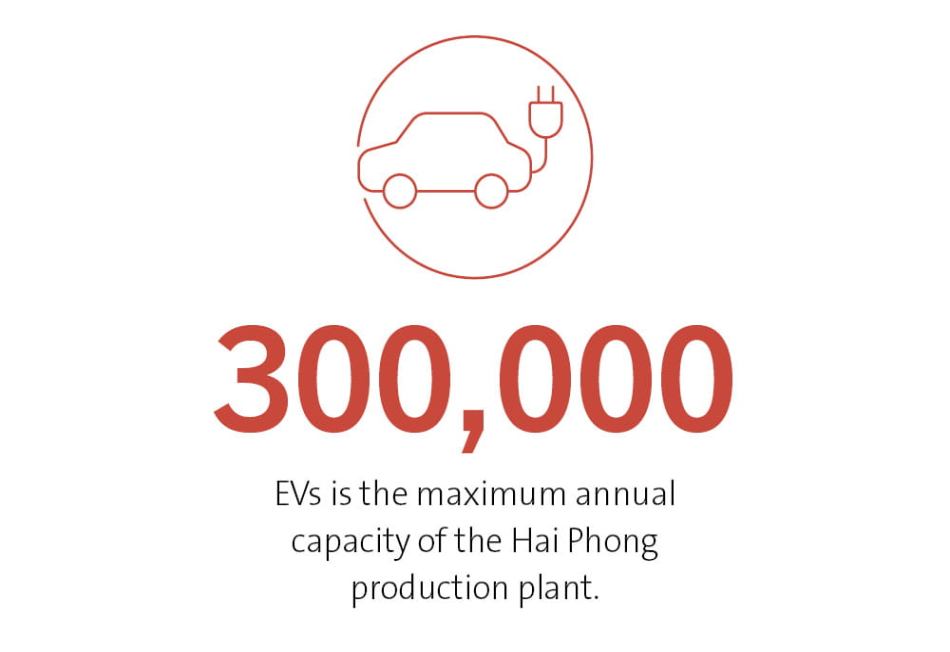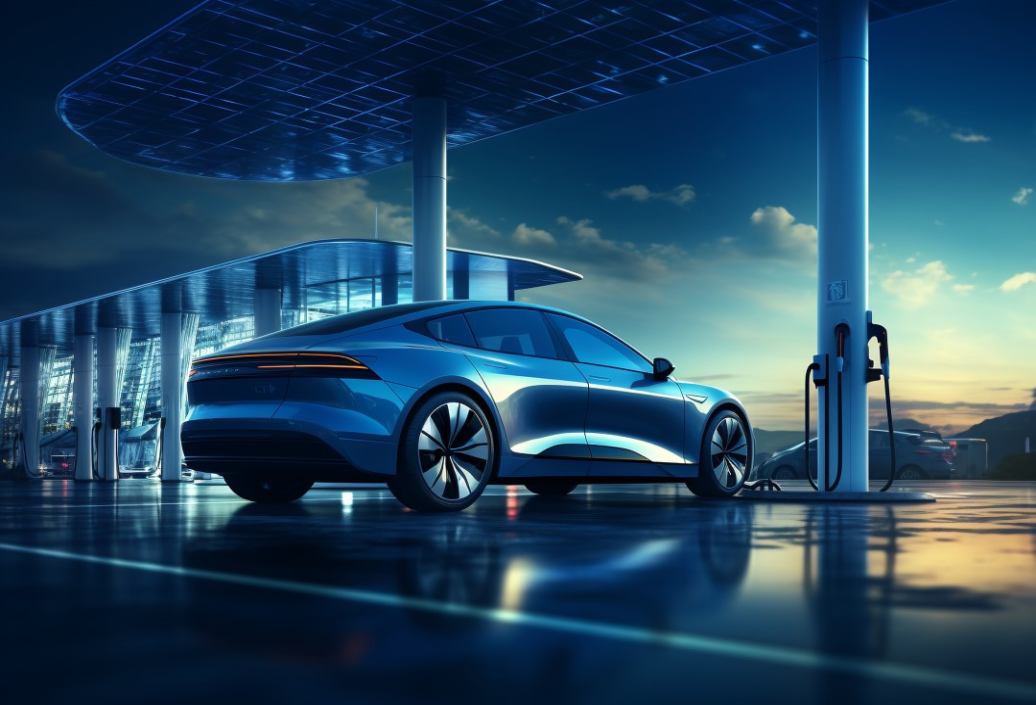Driving Change in Southeast Asia
Vietnam, a country known for its bustling cities and rich cultural heritage, is rapidly emerging as a significant player in the electric vehicle (EV) industry. The shift towards electric cars is more than just a trend; it’s a movement driven by the need for sustainable transportation solutions. The nation is not just embracing this change, but actively leading it, setting an example for its Southeast Asian neighbors.
VinFast: A Pioneer in the EV Industry
At the forefront of this revolution is VinFast, a Vietnamese automotive startup that has made headlines with its ambitious plans. Established in 2017, VinFast has quickly positioned itself as a major contender in the global EV market. Their commitment to producing high-quality electric vehicles has garnered attention both domestically and internationally, offering a beacon of innovation and promise in an otherwise traditional automotive region.

VinFast’s state-of-the-art manufacturing facility in Hai Phong is a testament to Vietnam’s industrial capabilities. This modern plant is equipped with cutting-edge technology and has the capacity to produce a significant number of electric vehicles annually. The facility not only produces cars but also serves as a research and development hub, fostering innovation in the EV sector. Engineers and designers work in tandem to push the boundaries of what is possible in electric vehicle technology.
The company’s flagship models, the VF e34 and VF e35, have received positive reviews for their design, performance, and affordability. These vehicles are designed to cater to the needs of the modern urban commuter, offering a range of features that prioritize comfort and efficiency. The VF e34, for instance, boasts an impressive range on a single charge, user-friendly infotainment systems, and advanced safety features that make it a compelling choice for city driving.
Government Support and Policies
The Vietnamese government has played a crucial role in promoting the adoption of electric vehicles. Several incentives and policies have been introduced to encourage both manufacturers and consumers to embrace EV technology. Tax breaks, subsidies, and investment in charging infrastructure are just a few examples of the government’s commitment to this cause. These policies have created a conducive environment for the growth of the EV sector, making it easier for startups like VinFast to thrive.

One of the most significant challenges in the widespread adoption of electric vehicles is the availability of charging stations. To address this, Vietnam has invested heavily in expanding its network of charging points across the country. This initiative aims to make electric vehicle ownership more convenient and accessible for the average consumer. By strategically placing charging stations in urban centers, along highways, and in residential areas, the government is working to eliminate range anxiety—a common concern among potential EV buyers.
The Environmental Impact
Switching to electric vehicles has numerous environmental benefits. Traditional gasoline and diesel-powered cars are significant contributors to air pollution and greenhouse gas emissions. In contrast, electric vehicles produce no tailpipe emissions, making them a cleaner and more sustainable option. This shift is particularly important in densely populated cities like Hanoi and Ho Chi Minh City, where air quality has been a growing concern.
Reducing Carbon Footprint
Vietnam’s push for electric vehicles is part of a broader strategy to reduce its carbon footprint. By promoting the use of EVs, the country aims to decrease its reliance on fossil fuels and lower overall emissions. This shift is essential in the fight against climate change and in improving air quality in urban areas. The transportation sector is a significant source of carbon emissions, and transitioning to electric vehicles is a critical step in achieving Vietnam’s environmental goals.
Community Awareness and Education
While the benefits of electric vehicles are clear, community awareness and education are crucial for the success of this transition. Efforts are being made to inform the public about the advantages of EVs and to dispel common misconceptions. Educational campaigns and public demonstrations are helping to build trust and interest in electric vehicles. Schools, universities, and community centers are hosting workshops and seminars to educate people about the long-term benefits of electric mobility.
Challenges and Future Prospects
Despite the progress, there are still challenges to overcome. The initial cost of electric vehicles can be a barrier for many consumers. Additionally, the range of EVs and the time required for charging are concerns that need to be addressed. However, these challenges are not insurmountable. With continued innovation and investment, the EV industry is poised to overcome these hurdles.
Technological Advancements
Technological advancements are key to addressing these challenges. Battery technology, in particular, is a critical area of focus. Improving battery efficiency, reducing charging times, and increasing the range of electric vehicles are ongoing areas of research. As these technologies evolve, they will make electric vehicles more practical and appealing to a broader audience. Researchers are exploring new materials and chemistries to enhance battery performance and reduce costs.
Collaborations and Partnerships
Collaborations and partnerships between government agencies, private companies, and research institutions are essential for the growth of the EV industry. By working together, these entities can pool resources, share knowledge, and drive innovation. International partnerships are also playing a crucial role, with Vietnamese companies collaborating with global EV leaders to bring the latest technologies to the local market.
Vietnam’s electric car revolution is a testament to what can be achieved when a country commits to sustainable development. The progress made so far is impressive, but there is still much work to be done. With continued support and investment, the future of electric vehicles in Vietnam looks promising. The country’s journey towards electric mobility is not just about adopting new technology; it’s about creating a sustainable future for generations to come.
As Vietnam continues to navigate its path towards a greener future, the success of its electric vehicle initiatives will likely inspire other nations in the region to follow suit. The ripple effect of this revolution could lead to a broader shift towards sustainable transportation solutions across Southeast Asia. The commitment of the Vietnamese government, the innovation of companies like VinFast, and the growing public awareness all contribute to a promising outlook for the EV industry in Vietnam.
The road ahead is filled with opportunities and challenges, but with a clear vision and unwavering commitment, Vietnam is well on its way to becoming a leader in the global electric vehicle market. The electric car revolution is not just a technological shift; it’s a cultural and societal transformation that promises to redefine the way we think about transportation and our relationship with the environment.










